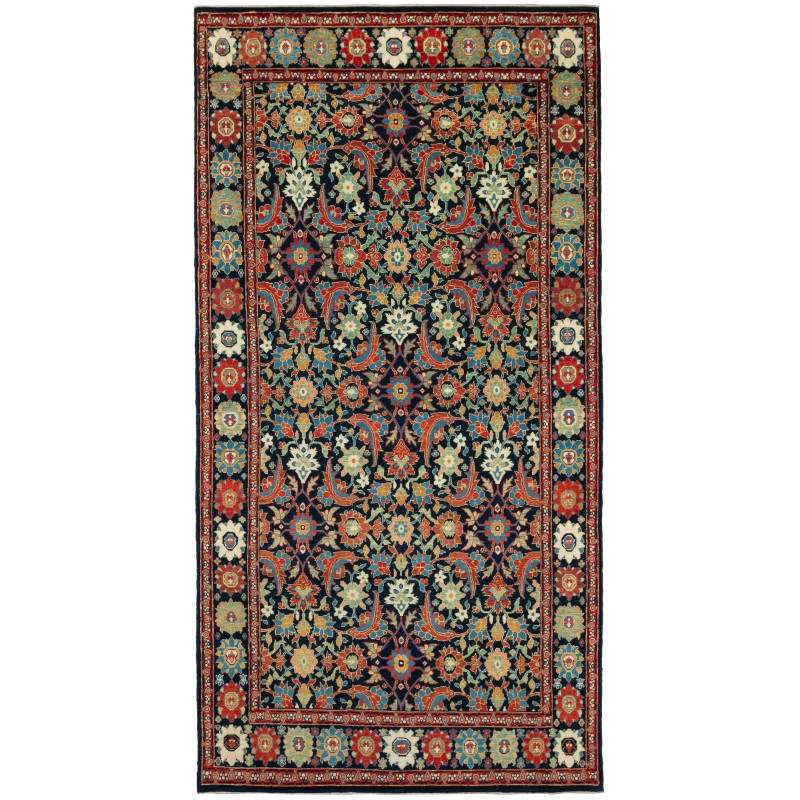
- Stock: In Stock
- Model: C40176
- サイズ: 157cm x 302cm
- SKU: ART218
この絨毯の情報源は、ジェームズ・D・バーンズによる著書『クルディスタンのアンティーク絨毯:編み込まれた芸術の歴史的遺産』(2002年、番号31)です。この青い背景の絨毯は、19世紀後半のセンナ、東クルディスタン地域からのマシ・アウィタ(蓮の周りに魚)のパターンのバリエーションです。この絨毯のフィールドデザインは、クルド人によってマシ・アウィタ(魚の複合体または蓮の周りに魚)と呼ばれています。マシはクルド語で、ペルシャ語のマヒ(ペルシャ人はhを使いますが、クルド人はsを使います)という言葉で、魚を意味します。蓮の花に泳ぐ魚は、13世紀にモンゴル人によってクルディスタンにもたらされた陰陽を表しています。西洋のカーペット文献では、このデザインをヘラティ・パターンと呼んでいます。この絨毯のデザインは、当社のデザイナーによって解釈され、鮮やかな色が選ばれています。
The source of the rug comes from the book Antique Rugs of Kurdistan A Historical Legacy of Woven Art, James D. Burns, 2002 nr.31. This blue background rug has a variation of masi awita (fish around the lotus) pattern from Senna, Eastern Kurdistan area late 19th century. The field design on this rug is called by the Kurds Masi Awita (fish composite or fish around the lotus). Masi is the Kurdish word for the Farsi Mahi (where the Persians use an h the Kurds use an s), meaning fish. The fish swimming around the lotus flower represents the Yin and Yang, a concept brought to Kurdistan by the Mongols in the 13th century. Western carpet literature refers to this design as the Herati pattern. The design of this rug is interpreted by our designers and vivid colors are chosen for this rug.
